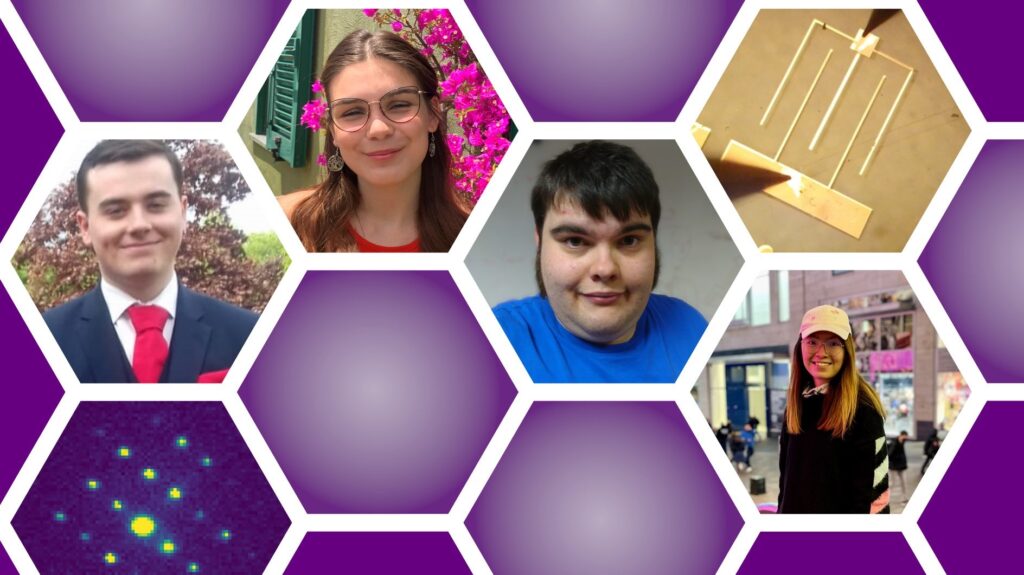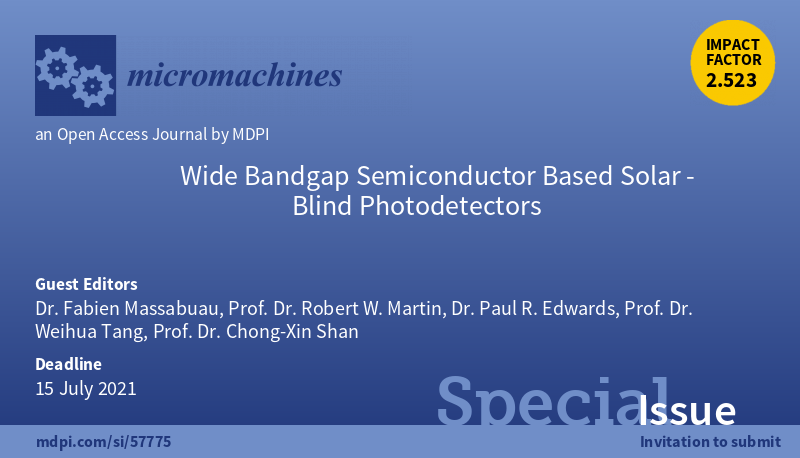Welcome to (from left to right) Ross, Aurora, Lewis, and Anthea into the GOOD group! They will be joining us for their summer projects.

Just another WordPress site
Welcome to (from left to right) Ross, Aurora, Lewis, and Anthea into the GOOD group! They will be joining us for their summer projects.

After a successful MSc project, Mugove Maruzane joined the GOOD group as a PhD student . In his PhD, Mugove will use the group’s EPMA to better understand Ga2O3 semiconductors, by combining optical, chemical and structural analysis of the materials.
Welcome Mugove!
Fabien receives a Research Visionary Award from the Rank Prize. He will take part in a tailored programme of workshops and one-to-one speaker and media training from Outsmart Insights to develop his vision on the future of UV optoelectronics.
Congratulations! Six ECRs in #nutrition / #optoelectronics will present their visions of the future to @jimalkhalili in January. @AngelaClaireW @plantsci @OfficialUoM @muneta_gmanzeke @UoNBiosciences @FionaMalcomson @HNRC_NclUni @FabienMassabuau @PhysicsStrath @OxfordPhysics pic.twitter.com/iDfGGA8fI3
— Rank Prize (@rankprize) November 4, 2021
Fabien appears in the list of Emerging Leaders issue of J. Phys. D: Appl. Phys.
@FabienMassabuau has been listed as a 2021 Emerging Leader in @JPhysD with a contribution on "Study of Ti contacts to corundum α-#Ga2O3"
— Physics, University of Strathclyde (@PhysicsStrath) July 12, 2021
Link to issue: https://t.co/2Vbr6hwHKq
Link to paper: https://t.co/Yg5u2zSRj1 pic.twitter.com/pXslkBBw3m
Warm welcome to Zak Johnston, Kay Polland and Abrar Almutari who are joining us for the summer.
– Zak will be working on UV-vis spectrophotometry of Ga2O3
– Kay will study Ga2O3 using temperature dependent photoluminescence
– Abrar will investigate the optical properties of h-BN using UV-vis spectrophotometry
Fabien has been presenting his new work on sequential plan-view TEM analysis of porous GaN at PICO2021.
Kick-off #PICOO2021 conference on Frontiers of Aberration Corrected Electron Microscopy.
— Fabien Massabuau (@FabienMassabuau) May 3, 2021
Join on Tue 10am (GMT) for my talk on sequential PV TEM. On the menu:
– Dislocations and pores
– Religious devotion to sample preparation
– Pretty pictures!https://t.co/xdcfcPXkpx pic.twitter.com/H2KY84ikCP
We were at the SPIE Photonics West meeting (06-11 March), this year held entirely online. Fabien was giving an overview of our work on Ga2O3.
Kick-off @PhotonicsWest! Come and check our presentation on alpha-#Ga2O3 grown by ALD.
— Fabien Massabuau (@FabienMassabuau) March 8, 2021
Link to presentation: https://t.co/9D2nwTyI6s
Link to paper: https://t.co/nel5hiK0Ff pic.twitter.com/jiQahSTsdh
Photoconduction of wide bandgap semiconductor materials and devices
Wide bandgap semiconductors (bandgap > 3.5 eV) are vital materials for applications in ultraviolet (UV) optoelectronic devices for, e.g., biochemical sensing, water purification, or high-power transistors. Photoconduction is one of the fundamental properties of semiconductors whereby incident photons at the appropriate energy generate free carriers in the material, thus increasing its conductivity. Studying photoconduction can theoretically reveal important linkages between the electronic, optical and structural properties of the studied material that would help develop new strategies to improve the efficiency of wide bandgap semiconductor devices.
The student will investigate the photoconduction properties of several wide bandgap semiconductors, with a particular focus on corundum phase alpha Gallium Oxide (α-Ga2O3). To achieve this, the student will use the newly built (and only in the UK) setup for wide bandgap photoconduction measurements. The analysis will be complemented with photoluminescence (PL) and UV-vis transmittance spectroscopy measurements, to correlate with the material optical properties. Finally, cathodoluminescence (CL) and electron beam-induced current (EBIC) techniques in the scanning electron microscope (SEM) will be used to observe the identified mechanisms with a nanoscale resolution.
Throughout the project the student will also be exposed to other techniques such as atomic force microscopy (AFM), X-ray diffraction (XRD), electron channelling contrast imaging (ECCI), transmission electron microscopy (TEM), as well as theoretical modelling. We will work in close collaboration with the crystal growers in order to build an in-depth understanding of how the growth affect the photoconduction properties in order to produce materials for efficient devices for UV optoelectronics.
We are looking for a highly motivated, proactive individual with keen interest in experimental physics and knowledge in the following areas: semiconductor materials and devices, semiconductor physics, characterisation techniques, and crystalline defects. Prior experience with the aforementioned experimental techniques is preferable.
To apply, send a cover letter, CV and a recent transcript via email at f.massabuau@strath.ac.uk.
Qualifications:
BSc (Hons) 2:1 or equivalent degree in physics /materials science/engineering.
Funding:
There is no funding for this project (self-funded students only). Please contact f.massabuau@strath.ac.uk to discuss applications for scholarship.
Fabien is guest editor of the Special Issue in Micromachines on “Wide bandgap semiconductors based solar-blind photodetectors”.
He is sharing this duty with co-editors Robert Martin (University of Strathclyde), Paul Edwards (University of Strathclyde), Weihua Tang (Beijing University of Posts and Telecommunications), and Chong-Xin Shan (Zhengzhou University).
Find out more here. Deadline 15 July 2021.

Fabien and colleagues from Liverpool took part in the IOP Twitter Poster Conference (15-16 July 2020). Here are the contributions.
Atomic layer deposited α-#Ga2O3 solar-blind photodetectors#IOPPoster #materials
— Fabien Massabuau (@FabienMassabuau) July 15, 2020
Related publications: https://t.co/9W4rtrwSP8; https://t.co/yYpgy9ZKMm pic.twitter.com/NpDq7U00mZ
#IOPPposter #materials @IOPPublishing
— JWRoberts (@JWRoberts19) July 15, 2020
Low temperature growth of alpha-Ga2O3 and doping with Ti using Atomic Layer Deposition for UV sensing devices pic.twitter.com/YIEewtSVqd